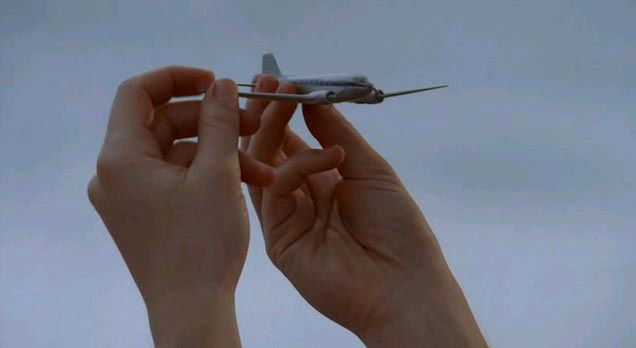My mother worked for an airline and we flew a lot. She was ground crew, so it was a big deal to fly for free. With two children in tow, she was determined that we should behave like we belonged in First Class. In my best dress and patent leather shoes, keeping my hands to myself, I learned my first lessons about how other people think. Class division was not my lesson. I was seven—it never occurred to me we didn’t belong there—we were there weren’t we? Instead, what I learned is that you get up really early in the morning, walk through a doorway and sit still for two hours, then the door opens and you step out someplace else—and nobody there has any idea what you’re talking about.
My mother insisted on washing my hair in the kitchen sink once a week “whether it needed it or not.” I never got a satisfactory explanation of why I could not do this task myself and take a big girl shower. My head is under the faucet and shampoo is running in my eyes again, and the more I complain the worse it gets. I am nine and I have a moment of clarity: all I have to do is have patience. I hold my breath, my eyes are burning, the water is too hot—but I picture myself an hour into the future playing in my room. I don’t use this word yet—but somehow I understand that time is linear.
At some point in my twenties I thanked my mother for encouraging me and told her I would not be the person I am now if it weren’t for how she always took me to the library. She laughed and told me that she only took me there because I would beg and cry. This explained a lot. All those Saturdays she would leave me in the children’s section and disappear upstairs—I gave her a lot of credit for being a voracious researcher when it turns out she was killing time in the magazine section. Meanwhile I’m afraid to join the other children for story circle, hugging the stacks trying to find Dr. Seuss. I didn’t understand the Dewey Decimal System until well into middle school. Don’t judge a book by its cover? That was the only way I could find a book.
We struggle to understand one another and make meaning. Our words stumble, pictures fill up the spaces; a spark ignites across a distance we cannot define. You feel like you understand what I’m trying to say, but I cannot take what is in my head and give it to you whole. How can you take a thousand memories, subjective moments that only you know, and share these with me? Luckily we are determined. We are armed with comparisons against things we do know. We tease out universal concepts, common experiences, and shared cultural mythologies. We succeed in some kind of close approximation of communication because we are hard-wired with the desire to understand each other. Whole libraries aren’t big enough to hold the things we need to share.
Making films with meaning is important to me. Without this I have nothing. I want to push the boundaries of formulaic thinking. There is a palpable divide between camps: there are those who see film as meant for entertainment consumption, and those who seek to examine and understand the cultural content of film. Ideally, the two ought to be able to co-exist somehow. Yet the perception of the place of film in our culture tends toward the Industry rather than Independent Film. This is unfortunate because so many voices are silenced by the bottom line. I want the work that I do to set an example for my students, that perhaps there are alternative ways of thinking and using the tools of film production to contribute to culture in a unique way.
What I love about my creative work is the capacity for making meaning. I take something that exists only in my head and make it manifest in reality so that I can stand back and watch other people experience it. I’m looking for the spark of recognition in your eyes: something to tell me that my patience and hard work makes it worth getting off the airplane.




